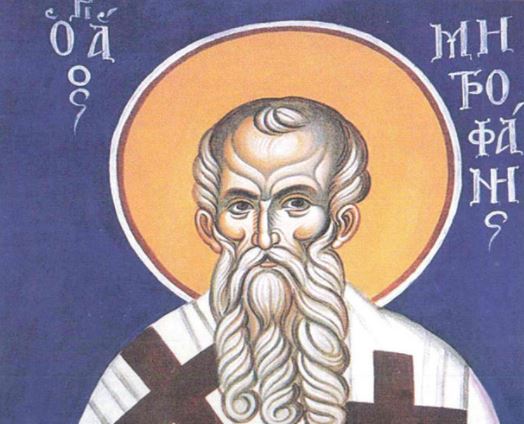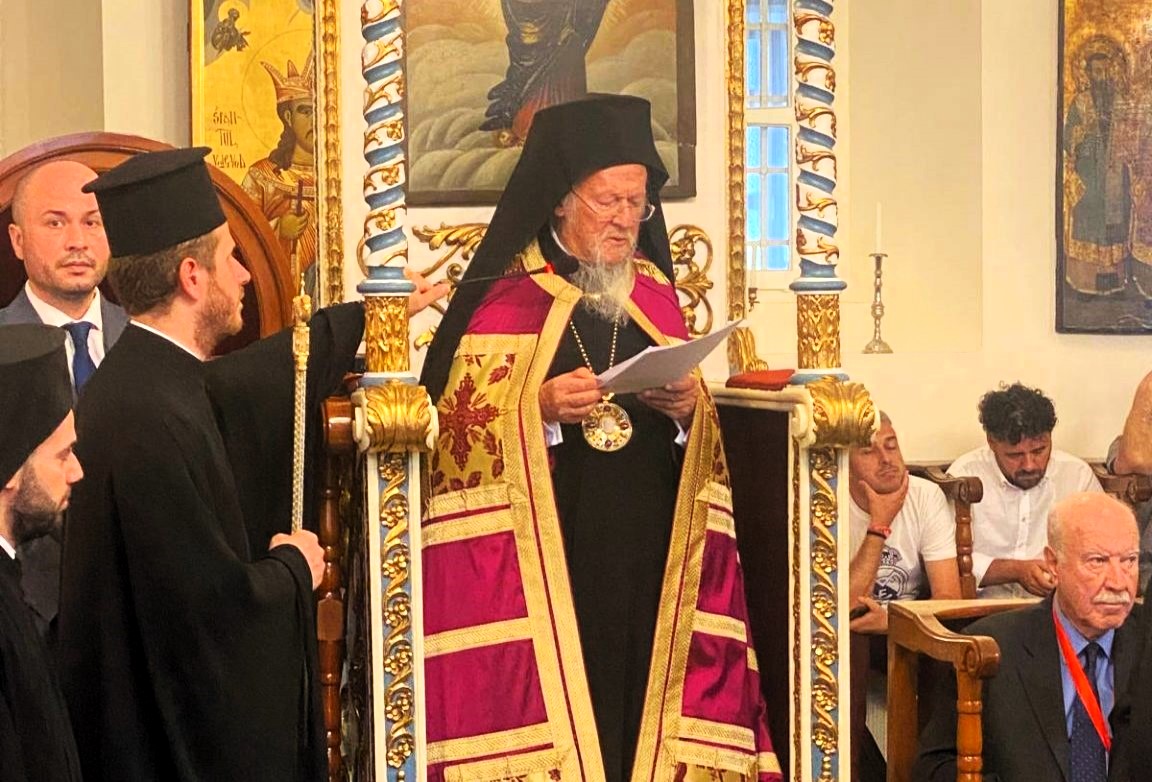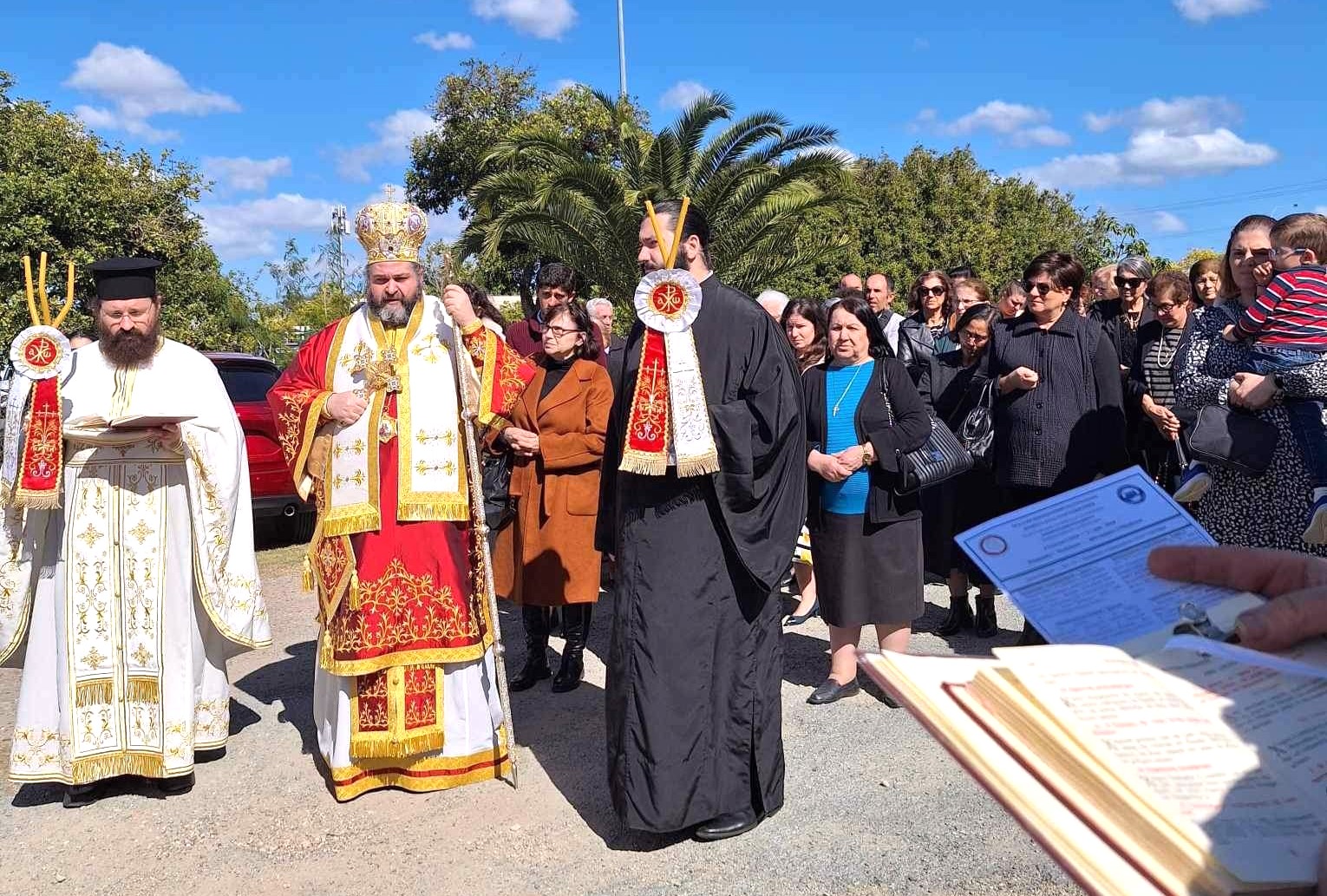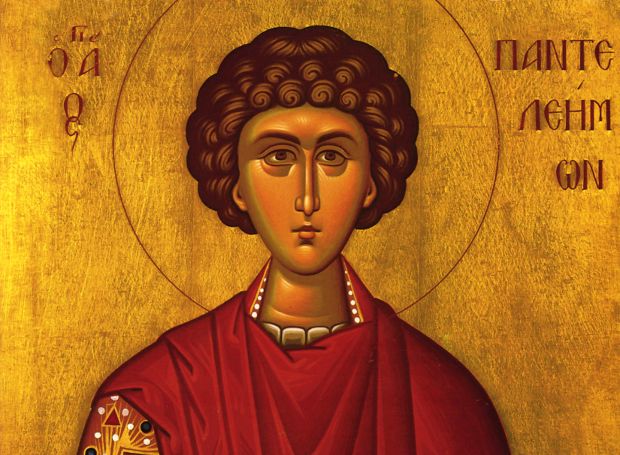Saint Metrophanes, first Patriarch of Constantinople (4 June)


Saint Metrophanes, Patriarch of Constantinople, was a contemporary of Saint Constantine the Great (306-337). His father, Dometius, was a brother of the Roman emperor Probus (276-282). Seeing the falseness of the pagan religion, Dometius came to believe in Christ. During a time of terrible persecution of Christians at Rome, Saint Dometius set off to Byzantium with two of his sons, Probus and Metrophanes. They were instructed in the law of the Lord by Bishop Titus, a man of holy life. Seeing the ardent desire of Dometius to labor for the Lord, Saint Titus ordained him presbyter. After the death of Titus first Dometius (272-303) was elevated to the bishop’s throne, and thereafter his sons, Probus (303-315) and in 316 Saint Metrophanes.
The emperor Constantine once came to Byzantium, and was delighted by the beauty and comfortable setting of the city. And having seen the holiness of life and sagacity of Saint Metrophanes, the emperor took him back to Rome. Soon Constantine the Great transferred the capital from Rome to Byzantium and he brought Saint Metrophanes there. The First Ecumenical Council was convened in 325 to resolve the Arian heresy. Constantine the Great had the holy Fathers of the Council bestow upon Saint Metrophanes the title of Patriarch. Thus, the saint became the first Patriarch of Constantinople.
Saint Metrophanes was very old, and was not able to be present at the Council, and he sent in his place the chorepiscopos (vicar bishop) Alexander. At the close of the Council the emperor and the holy Fathers visited with the ailing Patriarch. At the request of the emperor, the saint named a worthy successor to himself, Bishop Alexander. He foretold that Paul (at that time a Reader) would succeed to the patriarchal throne after Alexander. He also revealed to Patriarch Alexander of Alexandria that his successor would be the archdeacon Saint Athanasius.
Saint Metrophanes reposed in the year 326, at age 117. His relics rest at Constantinople in a church dedicated to him.
It should be noted that the Canons to the Holy Trinity in the Midnight Office in the Octoechos were not composed by this Metrophanes, but by Bishop Metrophanes of Smyrna, who lived in the middle of the ninth century.


Saint Metrophanes was born of pagan parents, but believed in Christ at a young age, and came to Byzantium. He lived at the end of the persecution of the Roman Emperors, and became the Bishop of Byzantium from about 315 to 325, during which time Saint Constantine the Great made it the capital of the Roman Empire, calling it New Rome. Saint Metrophanes sent his delegate, the priest Alexander, to the First Ecumenical Council in 325, since he could not attend because of old age. He reposed the same year and was buried by Saint James of Nisibis (celebrated Jan. 13), one of the Fathers present at the First Ecumenical Council. The Canons to the Trinity of the Octoechos are not the work of this Metrophanes but another, who was Bishop of Smyrna about the middle of the ninth century, during the life of Saint Photius the Great.
His father, Dometius, brother of the Roman Emperor Probus, fled from Rome as a Christian during the persecution of Christians and arrived at Byzantium. Titus, the Bishop of Byzantium, ordained him a presbyter. Following the death of Titus, Dometius became the Bishop of Byzantium. After the death of Dometius, his eldest son, Probus,(*) occupied the episcopal throne, and after the death of Probus, Metrophanes assumed the episcopal throne. When Emperor Constantine first saw Metrophanes, he loved him as a father. At the time of the First Ecumenical Council [325 A.D.], Metrophanes was already a man of one-hundred seventeen years and unable to participate in the work of the Council, so he appointed Alexander, his Choriepiscopus (vicar), as his representative. The emperor petitioned the Council to confer upon him [Metrophanes] the title of patriarch. Thus, he was the first Patriarch of Constantinople. Further, the emperor invited the entire Council to visit the ailing and aged arch-pastor. When the emperor asked him whom he wished to name as successor to the patriarchal throne, Metrophanes named Alexander of Alexandria. Then he said to Alexander: “O brother, I leave you as my most worthy successor.” He then took the hand of Archdeacon Athanasius (later Athanasius the Great, Patriarch of Alexandria) and praised him before all. After this prophecy, Metrophanes sought forgiveness from all and within ten days gave up his soul to God, in the year 325 A.D.
Apolytikion of Metrophanes Archbishop of Constantinople
First Tone
Proclaiming the great myst’ry, the Godhead in Three Persons, thou didst make most clear unto all men Christ’s saving dispensation. A shepherd to sheep endowed with speech, thou dravest off the spiritual wolves, and didst save from their destruction and savagery the lambs of Christ God, who cried out: Glory to Him that hath given thee strength. Glory to Him that hath crowned thee. Glory to Him that confirmed the pure Orthodox Faith through thee.
Source: oca.org / goarch.org / westserbdio.org




